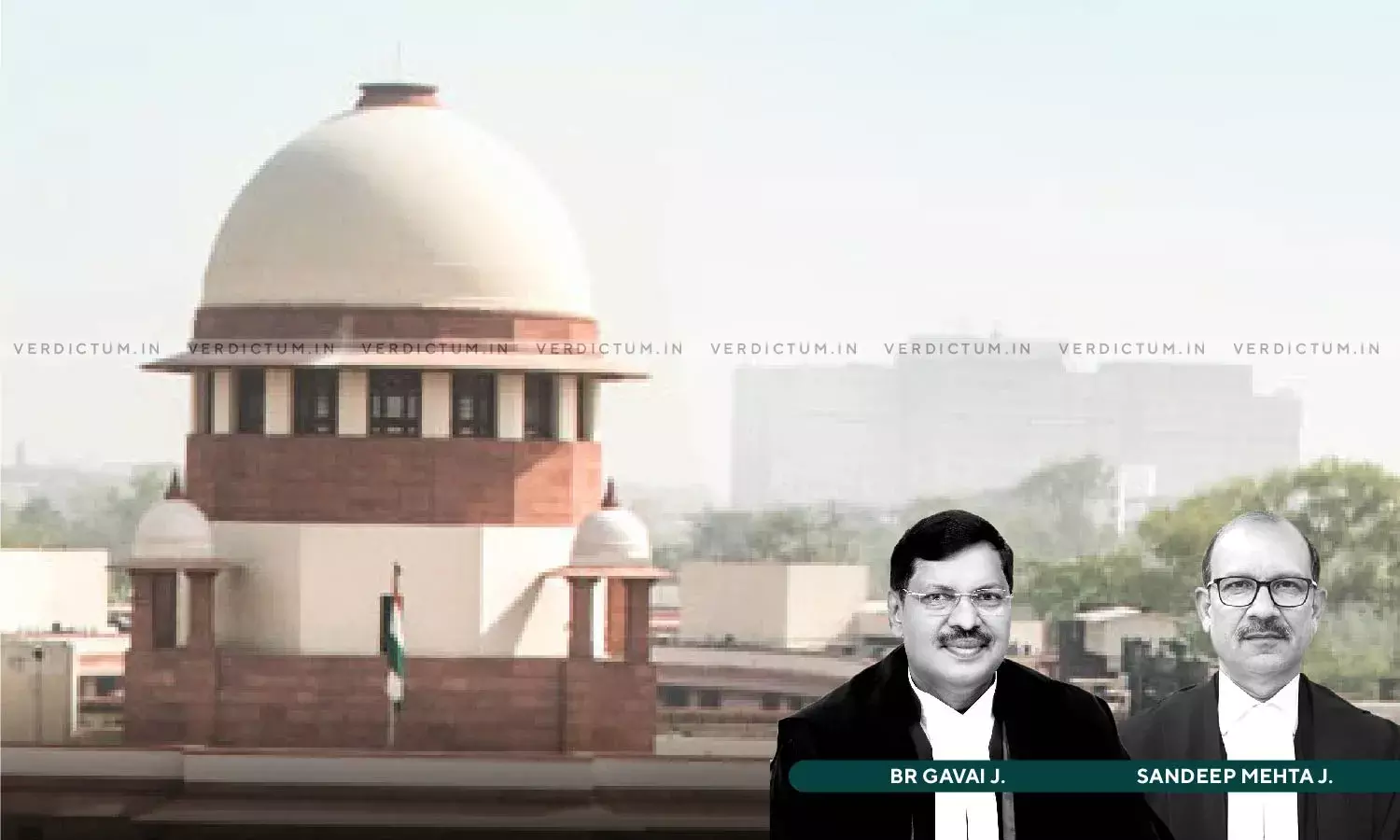Clause Already Annulled By HC’s Judgment Need Not Be Challenged Separately: SC Directs For Reinstatement Of Anganwari Sevika After 10 Years

The Supreme Court held that when a Clause (i.e. Clause 4.9 of Anganwari Sevika Guidelines, 2011 has already been annulled by the judgment of the High Court, there is no requirement to challenge its validity separately.
The Court allowed the Appeal of Anganwari Sevika whose appointment was challenged by another candidate. The Appellate Authority's decision, affirmed by the High Court, resulting in her dismissal, was overturned by the Apex Court.
The Bench comprising Justice B.R. Gavai and Justice Sandeep Mehta observed, “when the said Clause 4.9 of the 2011 Guidelines was struck down by the High Court vide judgment dated 27th September 2022, it ceased to exist. As such, it was not necessary for the appellant to challenge the validity of the same inasmuch as the same was already held to be invalid by the very same High Court”.
Advocate Shoeb Alam appeared for the Appellant and Advocate Samir Ali Khan appeared for the State.
The District Programme Officer issued a notice for the selection of Anganwari Workers/Sevika, to which both the Appellant and respondent No. 8 applied. The Appellant secured 80.60 marks, leading to her appointment as Anganwari Sevika.
Dissatisfied, respondent No. 8 sought to cancel the Appellant's appointment, submitting a representation to the District Programme Officer. When this request was rejected, respondent No. 8 appealed to the Appellate Authority, which overturned the appointment order. The Appellant then filed a writ petition before the High Court of Patna, which was dismissed by the learned Single Judge. In response, the Appellant appealed to the Division Bench, which also dismissed the appeal, prompting the initiation of an appeal before the Apex Court.
The Bench noted that it is evident that both the learned Single Judge and the Division Bench made a significant error in dismissing the writ petition and the subsequent appeal filed by the Appellant. A crucial aspect of contention, Clause 4.9 of the Anganwari Sevika Guidelines, 2011 (Guidelines), had imposed restrictions on individuals whose family members secured appointments with the State Government or any state organization. The appellant's sole basis for dismissal was the purported failure to challenge Clause 4.9 of the Guidelines before the High Court. However, it is apparent that the reasoning adopted by the learned Division Bench was entirely unsustainable.
The Bench observed that upon the High Court's annulment of Clause 4.9 of the Guidelines through its judgment, the clause ceased to be in effect. Consequently, there was no obligation for the Appellant to challenge its validity, as it had already been declared invalid by the same High Court. In light of this, the judgments and orders issued by both the learned Single Judge and the Division Bench were deemed legally unsustainable.
Accordingly, the Court allowed the Appeal and set aside the impugned judgments.
Cause Title: Anjum Ara v The State Of Bihar And Others (2024 INSC 400)

